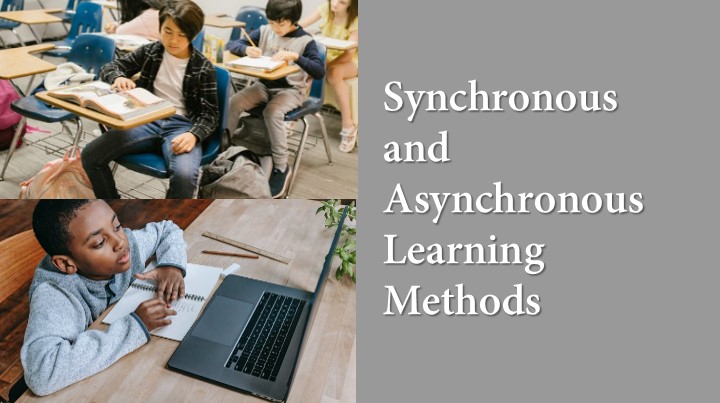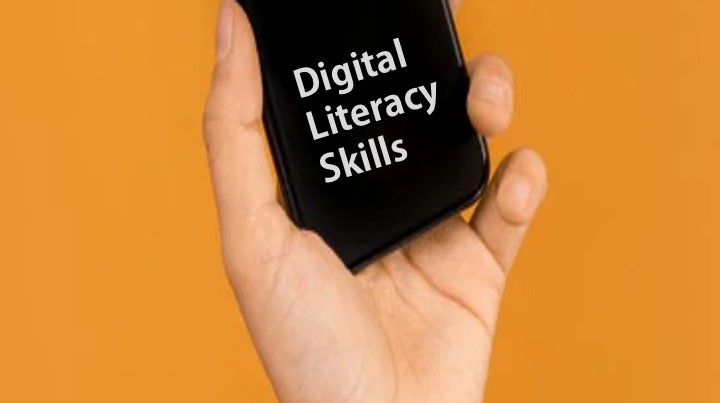Last Updated on April 22, 2023 by Uncle Pat Ugwu
As the digital world continues to grow and evolve at an exponential rate, it’s more important than ever for our youth to learn how to be safe, responsible, and ethical online. That’s where digital citizenship examples come in. We previously wrote about boosting social media security awareness. Digital citizenship involves using technology and the internet in a responsible and appropriate way, as well as showing respect for the rights and privacy of others.
Teaching kids about digital citizenship is crucial for their personal and academic success. It helps them develop good online habits, protect their personal information, and interact with others in a respectful and responsible manner. With the right education and guidance, our young ones can learn how to navigate the digital world safely and ethically. This knowledge is part of dynamic learning in practice.
In this blog post, we’ll dive deep into the concept of digital citizenship with examples and provide some tips and resources for teaching it to our students. We’ll also take a look at an infographic that highlights the key elements of digital citizenship and provides valuable information for students of all ages.
So stay tuned, and let’s get learning!
What is Digital Citizenship?
Digital citizenship encompasses a wide range of concepts and behaviors related to the responsible and appropriate use of technology and the internet. It involves taking responsibility for one’s actions online, being aware of online safety and security, and treating others with respect and kindness.
One key aspect of digital citizenship is responsibility and safety online. This includes being mindful of the information that you share online, protecting your personal information, and understanding the risks and potential consequences of online activities. It also means being aware of online predators and knowing how to report any suspicious or inappropriate behavior.
Another important aspect of digital citizenship examples is ethical behavior in the digital world. This includes respecting the copyright and intellectual property of others, being honest and transparent in online communication, and being mindful of the impact of one’s actions on others.
Digital Citizenship Examples
The term “digital citizenship” describes how to utilize technology and the internet ethically. It encompasses a wide variety of actions and routines, including:
1. Privacy and Security
Privacy and security include having strong passwords, being cautious with personal information while sharing it online, and being aware of online fraud and scams.
Makes sure to always use strong, unique passwords for all of his online accounts and is careful not to share any personal information, such as his home address or phone number, online. Always stay informed about common online scams and frauds, so he knows how to protect himself from them.
2. Respectful Communication
Respectful communication includes being courteous and respectful when interacting online, abstaining from bullying or using hate speech, and being aware of how one’s comments may affect other people.
Be polite and respectful when communicating online with her friends and classmates. Refrains from making negative or hurtful comments and is mindful of the impact her words may have on others.
3. Digital Footprint
Understanding one’s digital footprint, the influence it may have on their reputation, and being careful with the information one post online are all important.
Be aware of the permanent nature of digital content and the impact it can have on his reputation. Also, be thoughtful about the information he posts online, and regularly check his social media profiles to make sure everything is appropriate. Remember, the Internet does not forget.
4. Intellectual Property
Understanding and upholding others’ rights when it comes to digital material is considered intellectual property. Please check our post on creative learning solutions.
Remember to respect others’ rights when it comes to digital content. Endeavor to cite sources correctly and never use copyrighted material without permission.
5. Digital literacy
Digital literacy is the ability to utilize technology efficiently and securely while navigating the digital world. You can check our article on examples of digital literacy.
You should have a good understanding of how to use technology efficiently and safely. Learn how to navigate the internet and is able to troubleshoot any issues that may arise with her computer or other devices.
6. Online Safety
Understanding the best practices for being safe when using the internet, including how to protect yourself from online predators and how to steer clear of unsuitable information.
Be conscious of the best practices for staying safe online. Knows how to protect herself from online predators and avoids visiting sites with inappropriate content.
7. Online Ethics
Being conscious of moral issues that should be taken into account when utilizing technology, such as respecting other people’s privacy and data privacy.
Be mindful of moral issues when using technology, such as respecting other people’s privacy and being careful with their personal information.
8. Digital Rights and Obligations
Understanding the rights and obligations that come with utilizing technology and the internet, such as the freedom of expression and the obligation to refrain from cyberbullying and hate speech.
And finally in these digital citizenship examples, one knows that with the right to freedom of speech and expression come certain responsibilities, such as refraining from cyberbullying or hate speech. He makes sure to abide by these obligations when using the internet and technology.
Tips for teaching digital citizenship
As a parent or educator, it’s your job to make sure kids learn about being good with digital citizenship skills. Here are some tips to help you out:
- Set a good example: Remember that kids tend to follow what their parents or teachers do more than what they say. So make sure you’re showing good digital citizenship behaviors, like respecting others’ privacy, being responsible with personal information, and being kind and respectful online.
- Have open and honest conversations: Talk to your kids about why digital citizenship is important and the risks and consequences of different online activities. Encourage them to ask questions and share any concerns they have.
- Set some rules and boundaries: Make it clear how you expect your kids to behave online, including guidelines for social media, gaming, and other activities. Make sure they know what happens if they break the rules.
- Teach online safety and security: Help your kids understand things like online predators, cyberbullying, and other dangers. Show them how to protect their personal information and how to report any suspicious or inappropriate behavior.
- Encourage critical thinking and digital literacy: Help your kids develop the skills they need to evaluate the credibility of online sources, spot fake news, and make smart decisions online. Encourage them to be responsible and ethical digital citizens by questioning the sources of information and thinking about the impact of their online actions on others.
Resources for Teaching Digital Citizenship
There are many resources available to help parents and educators teach kids about digital citizenship skills. Here are a few options to consider:
- Digital citizenship curriculum or lesson plans: Many schools and organizations have developed comprehensive digital citizenship curricula or lesson plans that can be used in the classroom or at home. These resources often include interactive activities, videos, and other materials to help kids learn about digital citizenship in a fun and engaging way.
- Online resources and activities for kids: There are many websites and apps that offer interactive games and activities that teach kids about digital citizenship. Some examples include NetSmartz, Digital Compass, and Kids Online Safety.
- Parenting guides and tips for teaching digital citizenship: There are many resources available to help parents teach their kids about digital citizenship. These might include guides, tips, and articles that provide information on topics such as online safety, cyberbullying, and responsible social media use.
There are also some revision Apps that will be beneficial for your study.
Final Thoughts
Digital citizenship skills are essential for kids to develop in today’s digital world. It helps them navigate the online world safely and ethically, protect their personal information, and interact with others in a respectful and responsible way. Learn how to use ChatGPT ethically in education.
We hope that this blog post, along with the accompanying infographic, has provided you with useful information and inspiration for teaching digital citizenship skills to your kids. We encourage you to start teaching these important skills today and help your kids navigate the digital world safely and responsibly.






